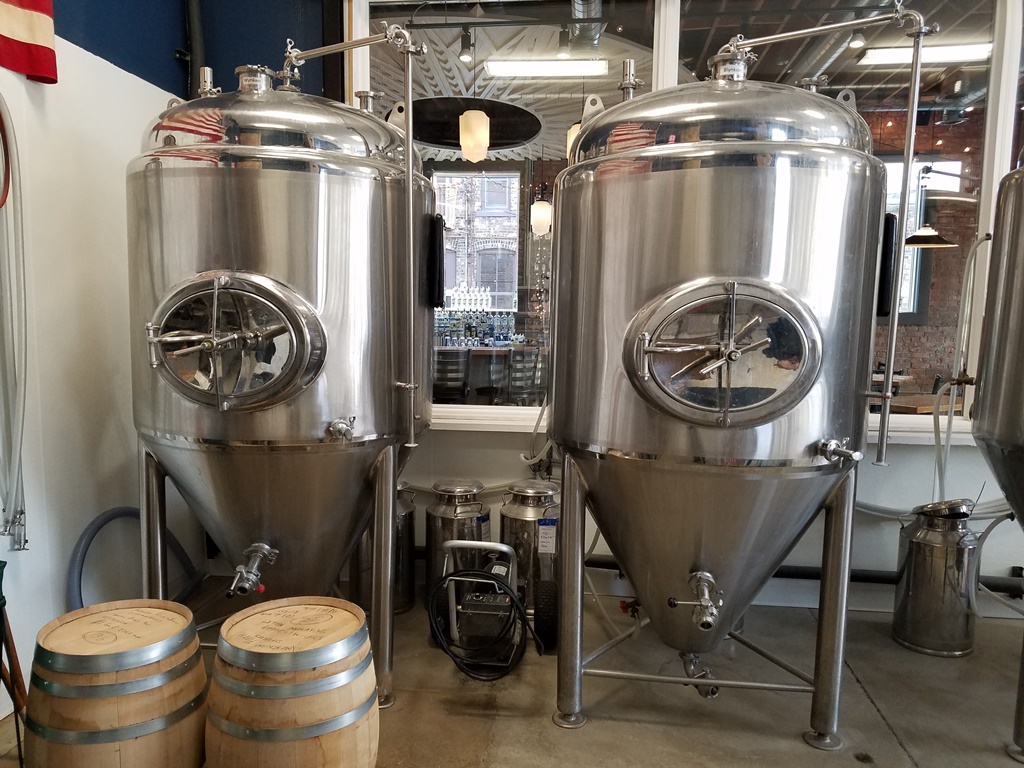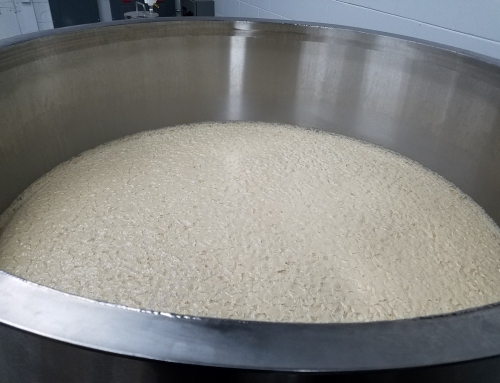The story of spirit-makers in this state is directly tied to its legislative history.
When European settlers arrived in the new land, they brought with them a taste for alcohol, and the know-how to produce it. They also learned quickly that the native people they encountered were unfamiliar with those products and their effects. It didn’t take long before the settlers began using spirits in trade with the aboriginals. A bi-product of the currency was the fact that their trade partners would imbibe, lose touch with their reasoning, and become poor negotiators. That enhanced the fur trade, but started to cause behavioral problems in the community.
As a result, Michigan began a lengthy moral debate regarding the virtues and vices associated with the production and sale of liquor. Laws have been passed and revoked multiple times, the effects of which can still impact producers today.
In 1850, prohibitionists won the legislative battle in Michigan; the state ratified a new constitution that explicitly forbade the granting of licenses for the sale of intoxicating liquors. In this regard, Michigan became a pioneer; it was the first state to enact a statewide ban on liquor licenses. Ironically, however, the legislature failed to enact provisions banning the sale of intoxicating liquors without a license. As a result, liquor sales became largely unregulated in Michigan, creating even greater problems than existed before the constitutional amendment. By the time the legislature enacted an “iron-clad” prohibition law in 1855, twelve other northern states had instituted statewide prohibition. Still the majority seemed to ignore the laws. In Detroit alone it’s estimated that the number of saloons tripled and the number of distilleries quadrupled during that time.
Throughout the 1860s and 1870s, almost every state that had adopted prohibition laws began the process of repealing those laws. Following their example, Michigan adopted the approach to controlling liquor traffic that had been previously proposed as an alternative to prohibition: strict licensing and high taxes. Beginning in 1875, all persons who sold intoxicating liquors in Michigan were required to pay an annual tax, regardless of whether the sale was for personal consumption or at wholesale. As a means of discouraging the sale of alcohol, the legislature set license fees at much higher rates than existed before prohibition in 1850.
In 1916, voters proposed and passed an amendment to the state constitution; beginning May 1st, 1918, Michigan once again became a dry state. Less than two years later, on January 17th, 1920, the Eighteenth Amendment to the U.S. Constitution came into effect, and the United States became a dry nation. For the next thirteen years, federal law dictated “no person shall manufacture, sell, barter, transport, import, export, deliver, or furnish any intoxicating liquor.”
During the 13-year federal dry period, bootlegging became common practice throughout the state. With its proximity to Canada, Detroit became a major force in the illegal alcohol trade. Before Prohibition the city was home to 1,500 bars, but by 1925 the number of blind pigs and speakeasy establishments is estimated to have been between 5,000 and 25,000. The New York Times even referred to rum-running as being Detroit’s second biggest industry next to cars.
In 1933, Michigan became the first state to ratify the Twenty-first Amendment in 1933, but some of the licensing and taxation that remained in place, still had a significant negative impact on the growth of the spirits industry.
Michigan’s breweries and wineries have been a part of the modern economic landscape for far longer than distilleries have. Wineries ventured in the spirit world with brandy, and then vodka made from grapes, but the cost of equipment and licensing still made the idea of full-scale distilleries rather unlikely.
The success of the local beer industry, also paved the way for the increasingly popular craft distillers that are popping up around the state. Because distilling follows the same basic initial fermentation process as brewing, the move toward producing spirits seemed like a natural one, though it was fraught with challenges until recently.
Finally in 2008, the state of Michigan repealed a law that had allowed only fruit-based spirits to be distilled, opening the door for a wide range of vodka, gin, whiskey, and all other spirits. Another law reduced the small distillery license fee from $1,000 to $100, and allowed distillers to sell their spirits on-site without a distributor. This led to the introduction of spirit tasting rooms like Grand Traverse Distillery, Journeyman, Long Road, Valentine, and others.
Another legal provision in the state’s micro-distilling laws now allows for operators to have a winery, brewery, and distillery license for the same site. Some breweries and wineries have added on a distiller’s license and getting into craft spirits like St Julian Winery and New Holland.
As Michigan’s craft distillers continue to mature, so will their offerings. Now that the enough time has passed since the changes in the liquor laws have caught up with the state’s entrepreneurial spirit, we will begin to see more aged whiskey and bourbon hitting the shelves.



Leave A Comment
You must be logged in to post a comment.